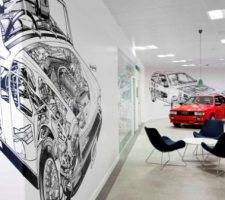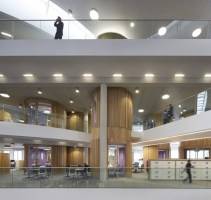November 13, 2014
Case Study: AutoTrader motors into its new Manchester digital playground
 Even in the context of a rapidly declining print market, the decision to end AutoTrader’s 37-year history as a printed magazine was not an easy one to take. At its height, Auto Trader had a circulation of 368,000, but in June 2013 the final printed copy rolled off the presses and the business began its new incarnation as a purely digital platform. Of course, this transformation was a long time in the making and had actually begun ten years earlier. By the time the print room lights went out, all of Auto Trader’s revenues had not only migrated online, but experienced significant growth too. It is Auto Trader’s growth during this process of transformation that is considered so unique in the publishing world and is proof that the business’ aspiration to be at the forefront of the digital marketplace is not just a wide-eyed intention. The website boasts 11.5million unique users, carrying out more than 140 million searches across mobile, table and desktop devices and the business is set to launch an extensive TV advertising campaign on boxing day.
Even in the context of a rapidly declining print market, the decision to end AutoTrader’s 37-year history as a printed magazine was not an easy one to take. At its height, Auto Trader had a circulation of 368,000, but in June 2013 the final printed copy rolled off the presses and the business began its new incarnation as a purely digital platform. Of course, this transformation was a long time in the making and had actually begun ten years earlier. By the time the print room lights went out, all of Auto Trader’s revenues had not only migrated online, but experienced significant growth too. It is Auto Trader’s growth during this process of transformation that is considered so unique in the publishing world and is proof that the business’ aspiration to be at the forefront of the digital marketplace is not just a wide-eyed intention. The website boasts 11.5million unique users, carrying out more than 140 million searches across mobile, table and desktop devices and the business is set to launch an extensive TV advertising campaign on boxing day.










 In the latest copy of the Workplace Insight newsletter available to view
In the latest copy of the Workplace Insight newsletter available to view 









October 29, 2014
The business case for green building widens to cover wellness and productivity
by Alison Kitchingman • Comment, Environment, Facilities management, Workplace design
(more…)